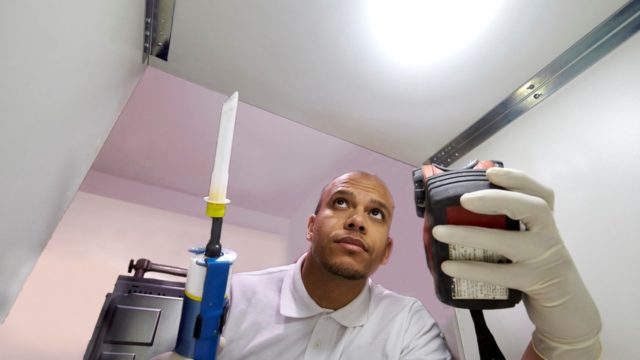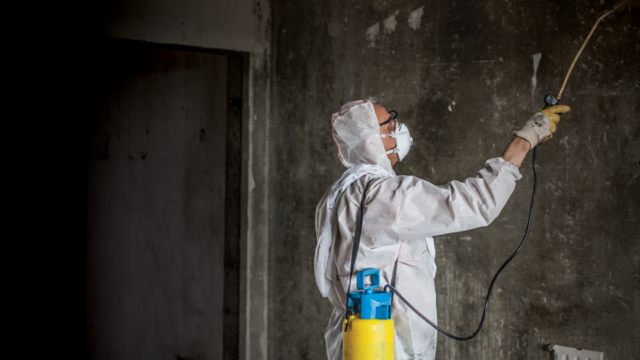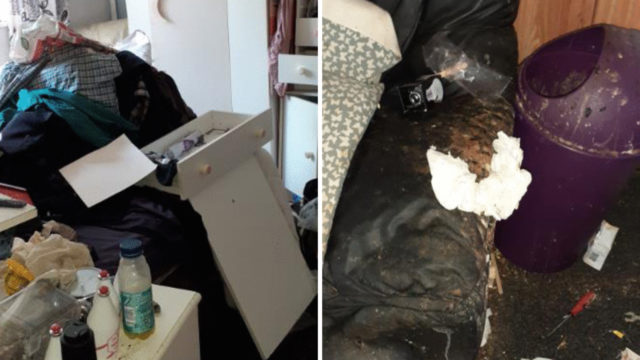Who is responsible for dealing with an infestation?
If you live in rented or council accommodation an Environmental Health Officer might be able to identify the cause of an infestation, which in turn might help work out who’s responsible.
Your landlord will be liable if your tenancy agreement states that they are responsible for the property being in a good and habitable state or words to that effect. They would also be responsible if the infestation was initially caused by your landlord not making certain repairs to your home – for example, not fixing holes in the walls and roof spaces.
If your home is furnished by the landlord and the property becomes damaged due to the pest infestation then the burden falls on your landlord to make any repairs. This is due to your landlord’s duty to ensure that your home is fit to live in, this duty may not apply if your home wasn’t furnished by the landlord.
Tenants must report any issues with the property to the landlord who is then responsible for taking suitable action or hiring an external pest control company. If tenants take action before the consent of the landlord, they run the risk of not being refunded for the cost incurred.
When might you be responsible for dealing with an infestation?
There are some situations whereby you may be responsible for dealing with a pest infestation. For example if the infestation was caused by something you did or didn’t do. For example, if you have not disposed of rubbish properly and it has attracted rats and mice.
What does a pest control company do?
Working with you to understand the level and type of infestation a pest extermination company will then create a plan to eradicate the pests from your home
An exterminator will check for sources of the pests such as bins or sewers, liaising with you and your family about preventative measures that you can take as well as the health risks associated with particular infestation
- Consultation
Upon contacting an extermination company you should expect a consultation to discuss your particular suspected infestation. You should expect questions such as “what type of pests do you believe the infestation to be?” and “where in the property have you seen the pests?”
These questions will determine the level of clean up you require.
In some cases an exterminator may carry out the consultation on site, conducting a full inspection of the interior and exterior of your home. They will be looking for pests and signs of pests such as nests and feces. They will also check for sources and contributing factors as to why you have an infestation.
At this point, the technician should discuss with you and prepare a quote and report outlining a treatment plan. If you have any questions or queries about the treatment, now is the time to ask away.
- Appointment
Staff should arrive on the scheduled date promptly. At SafeGroup, all of our staff aim to arrive on time but will update you if they are going to be delayed; and in our company uniform providing punctual and professional service at every scheduled appointment.
- Treatment
The discussed treatment can then be carried out as previously discussed. At this time you may need to evacuate your property from a couple of hours up to a day so you would need to make suitable arrangements beforehand.
- Post – Treatment
After the exterminator has treated the area they should then offer a debrief explaining what they have done, what they have found, and what if any precautions you need to take over the following hours or days. You must take this opportunity to chat through any concerns you have.
Preventative measures
It goes without saying that prevention is better than cure, there are many actions you can take to ensure that a full infestation doesn’t occur:
- Seal up all cracks and holes – These can be the perfect hiding spots for pests, making them even harder to get rid of. Try to use steel wool to fill spaces around pipes. Cover any holes with wire mesh.
- Store food properly – Ensure that all food is in sealed containers, rubbish, and food scraps should be put directly into the bin which should be emptied regularly./li>
- Traps & repellents- There are many specialised preventive methods you can use to control pests such as ultrasonic repellents that emit high-frequency sound waves inaudible to the human ear.
Why use SafeGroup?
SafeGroup has always offered pest control services and our clients based in the SE of England benefit from this regional service. In addition to employing experienced and knowledgeable pest control technicians and providing relevant reports and surveys, all the products we use are safe and environmentally safe. We aim to protect you, your business, or your family from the repercussions of any pest infestations in the most effective and efficient way possible.
It has never been easier for you to access other services you are likely to need, including bird dropping cleaning, hygienic cleaning, hazardous waste removal and wait and load waste collection. This is making our operations more responsive to your needs.
If you are noticing any of these signs it may be time for you to call pest control. Taking action as soon as possible will help avoid any serious damage to your property or health. The SafeGroup’s pest control teams are here to help. To discuss your pest control requirements, contact us and get your quote today.





